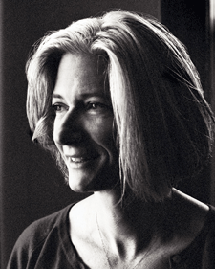Reviewed by NEAL GENDLER
Heaven is a brightly written look at how Jews, Christians and Muslims think about heaven — if they do at all. Lisa Miller’s conclusion is that most do, and in that order of intensity: little to occasionally by most Jews; more often by Christians, especially those we’ve come to call fundamentalists; and very frequently, even daily, by Muslims.
Although Miller, who writes about religion for Newsweek, is a Reform Jew, Heaven has room for everyone interested in the afterlife ideas of the three religions. Jewish views seem to get a little less coverage, perhaps because non-Orthodox movements tend not to offer specific pictures.
She says Jews often hear that “it is this life that matters, not the next.” Yet it’s common that Jewish funeral liturgy speaks of the spirit returning to God who gave it. My rabbi, like one in the book, speaks of heaven as being close to God, and hell as being far from God.
Miller presents an array of Christian ideas about heaven, many of them containing angels, perfection, light and reuniting with one’s dearly departed — for some, including pets.
Islam offers some of the most specific pictures, which Miller points out contain what’s lacking in the desert: verdant greenery, cool pavilions, gushing fountains, fresh food, and rivers of water, milk, honey and nonintoxicating wine. The Koran does promise males “the company of beautiful maidens,” she says, even if 72 virgins is “not a widely held belief.”

Miller says: “The person who most influenced our contemporary idea of physical resurrection was Augustine, the fourth century African bishop of Hippo.” He wrote that at death, “the soul ascends, leaving the body to rot…. At the end of time, there is a Judgment in which bodies and souls will be reunited.” Those bodies would be perfect.
For Miller, “resurrection is the biggest obstacle to belief in heaven.” At what physical age would one be reassembled? Augustine’s estimate is 30. So there we’d be — those of us who lived beyond youth — presumably in the company of parents, grandparents and great-grandparents, all of us 30; would we need nametags?
Another problem is how one gets to heaven. Christians disagree — about one-third on each side — over word vs. deed: Is belief in Jesus as messiah the ticket or can a life of good deeds get you in? Or a combination?
“According to the Quran, each one of a person’s deeds is inscribed in heaven,” she writes. Sounds familiar.
Heaven has some surprises from a writer at Miller’s level, especially in a republication of last year’s hardcover. She refers to “the afterlife,” not “an afterlife;” a word choice making belief into fact. Talking about Jews, she inappropriately uses “Christ” instead of “Jesus.” Christ is fine for writing about Christians, but Jews’ nonacceptance of Jesus as “the Christ,” or messiah, is our bedrock differentiation. She mentions the Dome of the Rock as being “on the same hill where the Temple allegedly once stood.” Allegedly? Archeologists differ about the precise location and alignment of the Temple on the platform known as the Temple Mount, but the Temple’s existence on it is fact established by physical evidence and contemporaneous records.
Does Miller believe in heaven? You’ll have to read to the end of the book, although she does say earlier that she’s “much more comfortable… with the idea of heaven as a matter of faith, not proof,” even after talking with people who’ve had near-death experiences.
Ultimately, of course, it’s not for us to know whether there is any sort of life — spirit or other — after death. But I like an answer given by the late Rabbi Bernard Raskas, of Temple of Aaron Synagogue in St. Paul.
Asked by a member — who, like Raskas, was beyond middle age — if there was, in fact, a heaven, Raskas replied: “I hope so.”
Don’t we all.
***
Neal Gendler is a Minneapolis writer and editor.
(American Jewish World, 4.29.11)



















Celebrated cosmologist Stephen Hawking states firmly in a recent interview that there’s no Heaven, and while I’m partly in agreement with him I remember also the words of Sir John Milton; “The mind is its own place, and of itself may make a Hell of Heaven, or a Heaven of Hell”. Hawking himself is arguably a living example of the philosophy of life’s being what you make it so it’s a strangely negative statement coming from him. Perhaps death will be what we make it as well. Who knows? 🙂